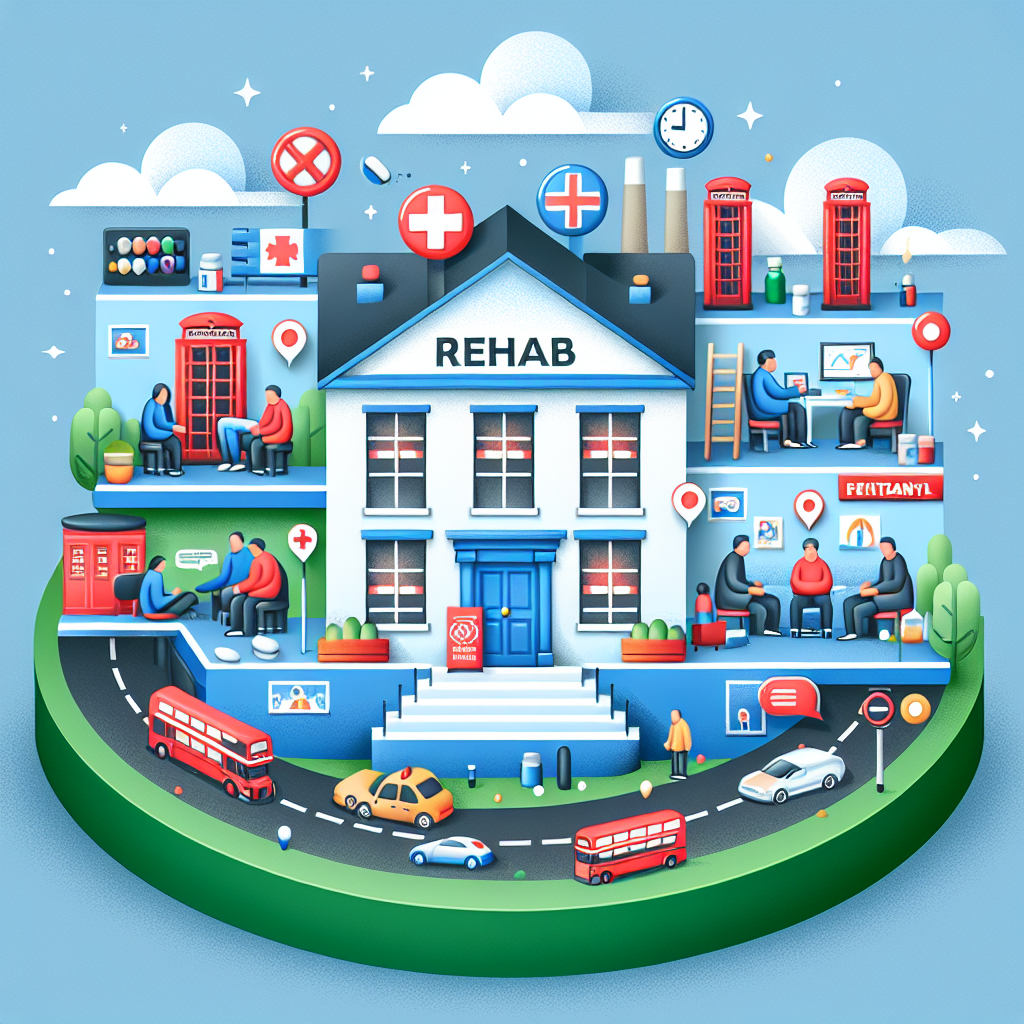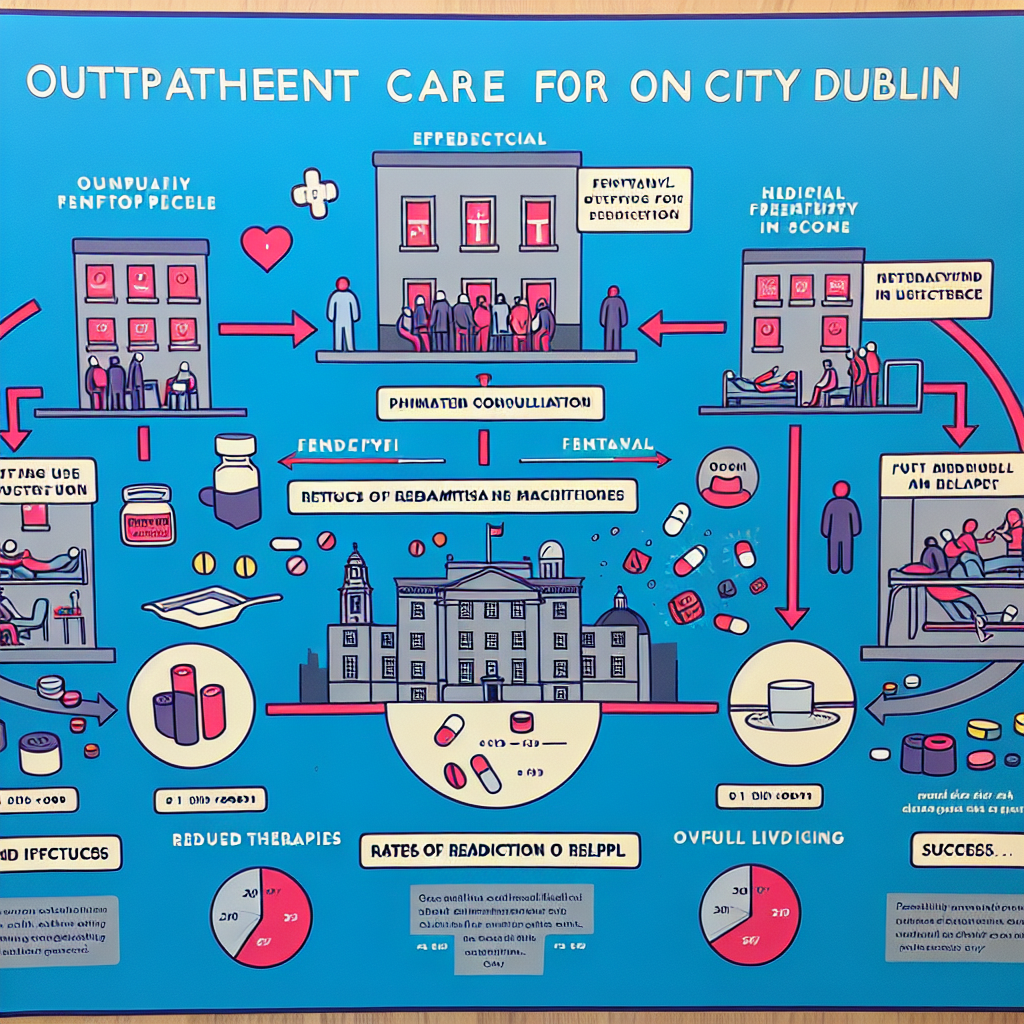-
Table of Contents

“Reclaiming Lives: Comprehensive Fentanyl Addiction Rehab in London”
Introduction
Rehabilitation for fentanyl addiction in London involves a comprehensive and structured approach to help individuals overcome their dependency on this potent opioid. The process typically begins with an initial assessment to determine the severity of the addiction and to develop a personalized treatment plan. Detoxification is often the first step, where medical professionals manage withdrawal symptoms in a safe and controlled environment. Following detox, patients engage in various therapeutic interventions, including individual counseling, group therapy, and cognitive-behavioral therapy (CBT), to address the psychological aspects of addiction. Rehabilitation programs may also incorporate holistic treatments such as mindfulness, exercise, and nutritional support to promote overall well-being. Additionally, aftercare planning is crucial, providing ongoing support and resources to help individuals maintain sobriety and prevent relapse. London’s rehab centers often offer both inpatient and outpatient services, allowing for flexibility based on the individual’s needs and circumstances.
Comprehensive Overview of Fentanyl Addiction Rehab Programs in London
Rehabilitation for fentanyl addiction in London is a multifaceted process designed to address the complex needs of individuals struggling with this potent opioid. The journey to recovery begins with acknowledging the problem and seeking help, a courageous step that sets the stage for a transformative experience. In London, rehab programs are tailored to provide comprehensive care, combining medical, psychological, and social support to foster long-term recovery.
Upon entering a rehab facility, the first phase typically involves a thorough assessment. This evaluation helps healthcare professionals understand the extent of the addiction, any co-occurring mental health issues, and the individual’s overall physical health. This initial step is crucial as it informs the development of a personalized treatment plan, ensuring that each patient receives the specific care they need.
Detoxification is often the next critical phase in the rehab process. Given fentanyl’s high potency and the severe withdrawal symptoms it can induce, medical supervision during detox is essential. In London, rehab centers are equipped with experienced medical staff who can provide medications to ease withdrawal symptoms and monitor patients closely to ensure their safety. This medically-assisted detox helps to stabilize patients, making them more receptive to subsequent therapeutic interventions.
Following detox, the focus shifts to addressing the psychological aspects of addiction. Cognitive-behavioral therapy (CBT) is a cornerstone of many rehab programs in London. CBT helps individuals identify and change negative thought patterns and behaviors associated with their addiction. Through individual and group therapy sessions, patients learn coping strategies, develop healthier ways of thinking, and build a support network with others who are on a similar journey.
In addition to CBT, many rehab centers incorporate holistic therapies to support overall well-being. These may include mindfulness meditation, yoga, art therapy, and physical exercise. Such activities not only promote mental and physical health but also provide patients with constructive outlets for stress and emotions. By integrating these holistic approaches, rehab programs in London aim to treat the whole person, not just the addiction.
Family involvement is another critical component of fentanyl addiction rehab. Addiction often affects not just the individual but also their loved ones. Family therapy sessions can help repair relationships, improve communication, and provide family members with the tools they need to support their loved one’s recovery. This inclusive approach ensures that the patient has a strong support system both during and after their time in rehab.
As patients progress through their treatment, preparing for life after rehab becomes a primary focus. London rehab centers emphasize the importance of aftercare planning to prevent relapse. This may involve ongoing therapy, participation in support groups such as Narcotics Anonymous, and regular check-ins with healthcare providers. By establishing a robust aftercare plan, patients are better equipped to navigate the challenges of maintaining sobriety in their daily lives.
Ultimately, rehab for fentanyl addiction in London is about more than just overcoming physical dependence; it is about empowering individuals to reclaim their lives and build a future free from addiction. The comprehensive and compassionate care provided by these programs offers hope and a path to recovery for those affected by this devastating drug. Through a combination of medical treatment, psychological support, holistic therapies, and family involvement, rehab centers in London strive to help individuals achieve lasting recovery and a renewed sense of purpose.
Key Steps and Treatments in London’s Fentanyl Addiction Rehabilitation Process
Rehabilitation for fentanyl addiction in London is a comprehensive and structured process designed to help individuals overcome their dependency on this potent opioid. The journey to recovery is multifaceted, involving a combination of medical, psychological, and social interventions. Understanding the key steps and treatments involved can provide hope and clarity for those seeking to reclaim their lives from the grip of addiction.
The first crucial step in the rehabilitation process is assessment and evaluation. Upon entering a rehab facility, individuals undergo a thorough assessment to determine the severity of their addiction, any co-occurring mental health disorders, and their overall physical health. This evaluation is essential as it helps tailor a personalized treatment plan that addresses the unique needs of each patient. The goal is to create a roadmap that guides the individual through their recovery journey.
Detoxification, or detox, is often the next phase in the rehabilitation process. Given the highly addictive nature of fentanyl, detox can be particularly challenging. In London, medical detox programs are designed to manage withdrawal symptoms safely and effectively. Under the supervision of healthcare professionals, patients receive medications to alleviate discomfort and reduce cravings. This medically supervised environment ensures that any complications are promptly addressed, making the detox process as safe as possible.
Following detox, the focus shifts to therapy and counseling, which are integral components of fentanyl addiction treatment. Cognitive-behavioral therapy (CBT) is commonly used to help individuals understand the underlying causes of their addiction and develop healthier coping mechanisms. Through CBT, patients learn to identify and challenge negative thought patterns and behaviors that contribute to their substance use. Additionally, group therapy sessions provide a supportive environment where individuals can share their experiences, gain insights from others, and build a sense of community.
In addition to traditional therapy methods, holistic treatments play a significant role in the rehabilitation process. These treatments, which may include yoga, meditation, art therapy, and acupuncture, aim to heal the mind, body, and spirit. By incorporating holistic approaches, rehab centers in London offer a well-rounded treatment plan that addresses all aspects of an individual’s well-being. This comprehensive approach not only aids in recovery but also promotes long-term health and resilience.
Family involvement is another critical element in the rehabilitation process. Addiction often affects not just the individual but also their loved ones. Family therapy sessions help repair relationships, improve communication, and provide education about addiction and recovery. By involving family members in the treatment process, rehab centers ensure that patients have a strong support system when they transition back to their daily lives.
After completing the initial phases of treatment, aftercare and ongoing support become vital to maintaining sobriety. Rehab centers in London offer various aftercare programs, such as outpatient counseling, support groups, and relapse prevention planning. These programs provide continuous support and guidance, helping individuals navigate the challenges of post-rehab life. The emphasis on aftercare underscores the understanding that recovery is a lifelong journey, requiring ongoing commitment and support.
In conclusion, rehab for fentanyl addiction in London is a structured and compassionate process that addresses the complex nature of addiction. Through a combination of medical detox, therapy, holistic treatments, family involvement, and aftercare, individuals are equipped with the tools and support they need to achieve and maintain sobriety. The journey may be challenging, but with the right resources and determination, recovery is not only possible but also within reach.
Q&A
1. **Question:** What types of therapies are commonly used in rehab for fentanyl addiction in London?
**Answer:** Common therapies include cognitive-behavioral therapy (CBT), group therapy, individual counseling, and sometimes medication-assisted treatment (MAT) with drugs like methadone or buprenorphine.
2. **Question:** How long does a typical fentanyl rehab program last in London?
**Answer:** A typical fentanyl rehab program in London can last anywhere from 28 days to several months, depending on the severity of the addiction and the individual’s progress.
Conclusion
Rehab for fentanyl addiction in London typically involves a comprehensive approach that includes medical detoxification, behavioral therapy, counseling, and support groups. Medical detox helps manage withdrawal symptoms under professional supervision. Behavioral therapies, such as Cognitive Behavioral Therapy (CBT), address the psychological aspects of addiction. Counseling provides emotional support and coping strategies, while support groups offer peer encouragement and shared experiences. The goal is to achieve long-term recovery through a combination of medical treatment, psychological support, and community resources.



